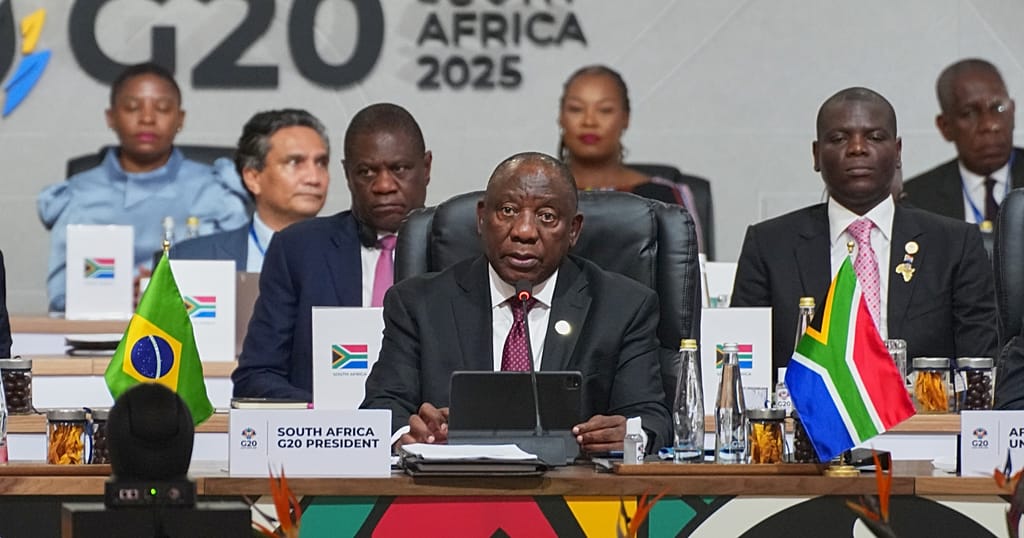The G20 summit in South Africa has concluded with the adoption of a leaders’ declaration, despite the absence of the United States. World leaders from the remaining G20 countries gathered in South Africa, where they agreed on a joint statement, marking a significant moment in international diplomacy. The move comes amid a diplomatic rift between the US and South Africa, which led to the US boycotting the two-day talks.
The Trump administration had reportedly pressured South Africa not to adopt a declaration without an American delegation present. However, South African President Cyril Ramaphosa stated earlier this week that his country would not be “bullied” into changing its stance. The declaration’s adoption is seen as a victory for South Africa, with Ramaphosa hailing it as a demonstration of the effectiveness of multilateralism.
The contents of the declaration have not been disclosed, but it is expected to address pressing global issues such as climate change and inequality. The summit, the first to be held in Africa, aimed to make progress on these long-standing problems. Ramaphosa emphasized the importance of leaving no person, community, or country behind, underscoring the G20’s commitment to cooperation and solidarity.
While the declaration was reportedly adopted unanimously, Argentina did not endorse it, with President Javier Milei absent from the summit in solidarity with the US. The country was represented by its Foreign Minister, Pablo Quirno. The break from tradition, with the declaration being adopted at the start of the summit rather than the end, reflects South Africa’s determination to find consensus despite the US boycott.
The G20 summit’s outcome is significant, as it demonstrates the willingness of world leaders to work together to address global challenges. The adoption of the declaration sends a strong signal to the international community that multilateralism can deliver results. As the G20 countries move forward, they will be expected to build on this momentum, working together to tackle pressing issues and promote cooperation and understanding among nations. With the summit’s ambitious agenda and the commitment of its participants, there is hope for meaningful progress on issues like climate change and global inequality.
